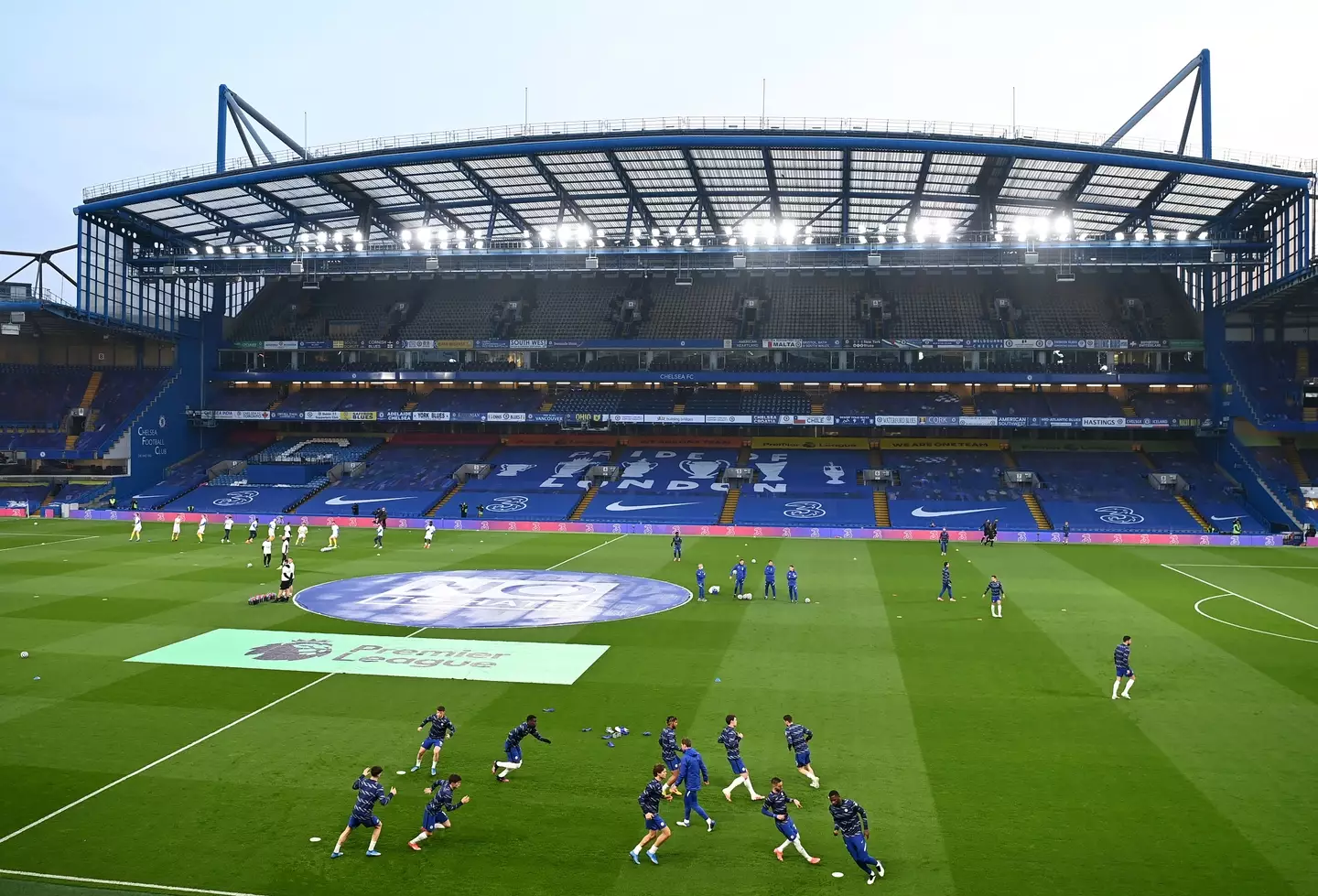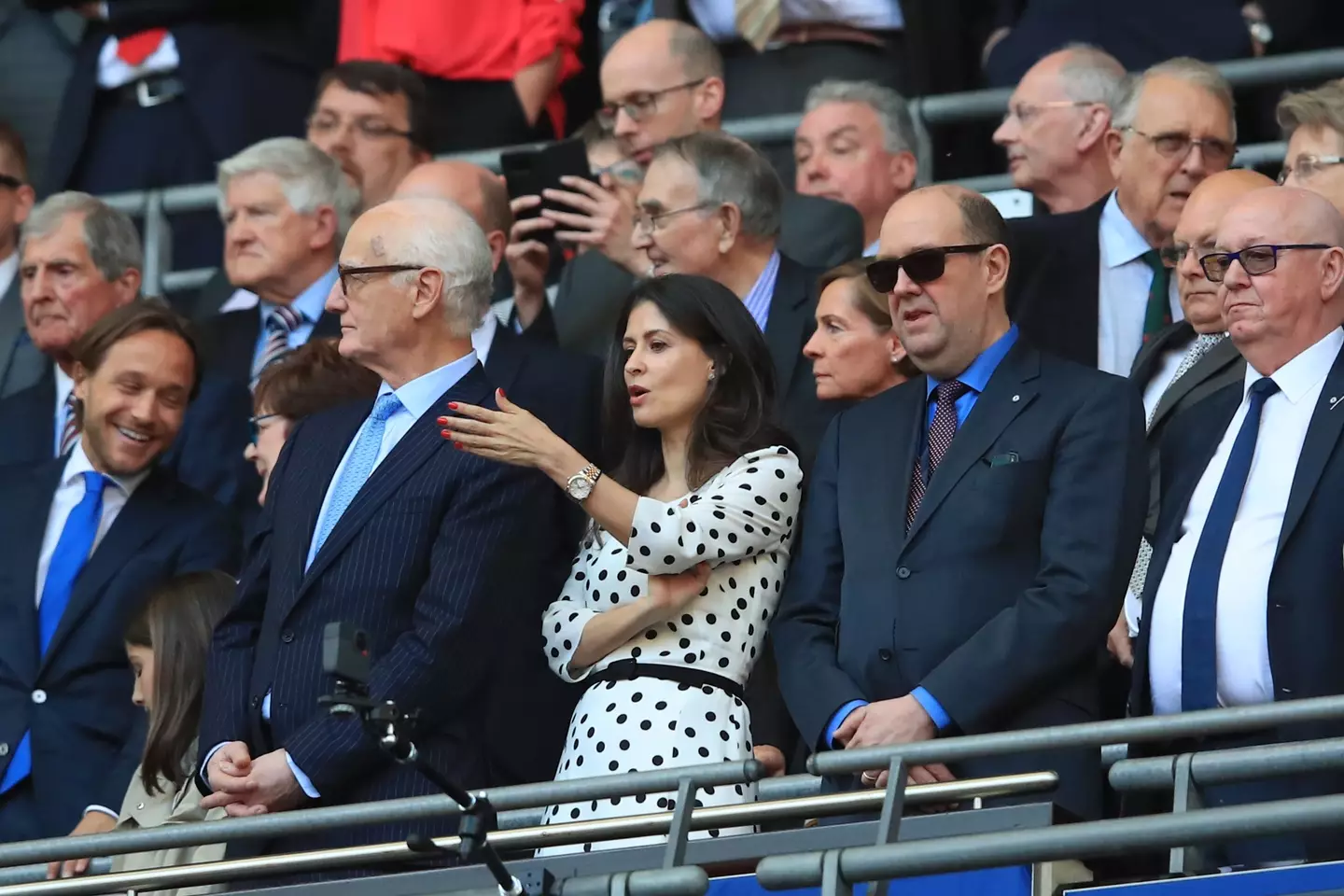
Chelsea could face a points deduction and a transfer ban next summer as a football finance expert predicts a record Financial Fair Play (FFP) rule breach.
That's according to @SwissRamble, who forecasts huge sanctions against the Premier League side, having predicted a record FFP rule breach.
Chelsea could be hit next year, with the club facing the potential of a points deduction and a transfer ban next summer if they are found to fall foul of FFP's regulations around losses.
Advert
On X, the finance expert wrote: "The @SwissRamble have confirmed our - scoop - from two weeks ago with a fresh forecast also showing that CFC is heading towards a record breach of the FFP provisions next summer!
"A forecast is a forecast and the direct insight into a club like Chelsea is very limited, but the assumption must be that this is part of Chelsea’s strategy and that they for example are bracing themselves for a transfer ban next summer. They will still be allowed to do business in January, however.
"Former PL boss Richard Scudamore was very clear that the PL would request Points Deductions if any team breach the 105m limit when the rules was implemented in 2013. Even if further sales still are possible, I think the forecasts are too optimistic by quite a large margin (sign on fees, agent fees etc). So this will be interesting to follow next summer depending on where Chelsea finish."

Since Todd Boehly’s arrival, Chelsea have handed several long-term contracts to new signings to spread costs.
This is a form of creative accounting used to balance the books by gradually writing off the initial cost of a player over the course of their deal.
While UEFA reacted to this practice by ruling that from this summer window, clubs will be able to offer long deals but be limited to spreading out the cost of fees to a five-year period, the Premier League never made such a move.
And with Chelsea not in European competition this term following their 12th-placed finish last season, they have been able to continue exploiting the FFP loophole.
According to Mail Sport, the anomaly in accounting rules has been raised with the Premier League by a host of clubs and is set to be discussed at shareholders' meetings this season, with a view to a rule change being introduced for the 2024/25 campaign.
We asked fellow football finance expert Kieran Maguire to offer an analysis of the situation and offer context around Chelsea's spending to this point under Boehly.
Here’s an attempt to add to the debate, which I will attempt to keep as simple as possible and focus on the Premier League position (the UEFA rules are different).
Under Premier League rules, a club cannot lose more than £15 million over a rolling three-year assessment period. However, if owners are willing to put money into the club in the form of shares (which never have to be repaid) instead of loans (which do have to be repaid) then the losses can be increased to a maximum of £105 million.
A quick look at Chelsea’s accounts for the three years ending 30 June 2022 (clubs always take a few months before they publish their financial results, so we are always looking at historic information).
Chelsea lost £241 million pre-tax in the three years ended 30 June 2022 per their accounts. However, things then start to get complicated, as the Premier League allows a series of adjustments.
A Covid-led lockdown in the spring of 2020 and almost the whole of the 2020/21 season meant that clubs were hit hard financially. The Premier League therefore added together the financial results of both seasons and then halved them, treating both seasons as a single one for FFP purposes.

The club was also allowed to claim for Covid-specific costs, such as loss of ticket sales, pre-season tour income, broadcast rebates, extra testing and accommodation costs and so on. This is where the known unknowns kick into the equation. Chelsea, unlike some other Premier League clubs, have not quantified the impact of Covid on its accounts, so here guesswork kicks in.
Everton claimed the pandemic cost them £170 million, partly due to the negative impact on player values when they were trying to sell. That resulted in charges from the Premier League as Everton incurred huge losses both pre, during and post-Covid. Chelsea have far bigger matchday revenues per season (about £75 million) than Everton (about £15m) so could in theory claim significant Covid costs. Chelsea did write down player values in the accounts in 2021 and 2022 by £94 million, which could be Covid related, or could be due to poor recruitment. The club will argue the former when presenting their adjusted loss calculations to the authorities.
In addition, clubs can reduce their losses if they have spent money on ‘virtue’ areas such as infrastructure, women’s team, academy and community projects. Chelsea have historically spent large sums here and this could help them stay within the limits.
When Russia invaded Ukraine in 2022, Roman Abramovich’s assets were frozen by the UK government due to his alleged ties with the Putin regime. This resulted in further loss of gate receipts, merchandise sales, hospitality income and so on. The sums involved are again unknown. When Chelsea was sold to the new owners it appears that senior Abramovich executives such as Marina Granovskaia and Bruce Buck earned about £50 million. Chelsea will argue these costs should be adjusted for too.

We then come to the recruitment model under Clearlake/Boehly at Chelsea. The club have spent about £900 million to date, an unheralded amount. What also sets Chelsea apart is the long contracts they have granted to players and the new sexy word in football, amortisation.
If a club buys a player’s registration, the cost is spread over the contract life. So, when Chelsea signed Enzo Fernandez for £107 million on an 8.5-year contract, the annual cost in the accounts for FFP purposes was about £12.5 million. If Fernandez had a fairly standard five-year contract, the cost would have been just over £21 million (£107m/5 years).
Repeating this strategy over many contracts has allowed Chelsea to have a much lower amortisation cost going through the books than otherwise would have been the case.
UEFA looked at this policy and smelled a rat, concluded there was a loophole being exploited and have therefore capped amortisation at five years from 1 July 2023.
When it comes to player sales, they tend to benefit the selling club. The profit on player sales is calculated as the sale price less the book value (cost less amortisation) at the sale date. If the player sold came from Chelsea’s academy the book value is zero and so pure profit arises. This is where Chelsea have excelled. Over the past decade, their player sales have been much higher (£1.2 billion) than that of other Premier League clubs (Manchester United, for example, have only managed £400 million in the same period) and this has allowed them to keep buying.
When Chelsea sold Mason Mount earlier in the summer to Manchester United for £55 million, this was treated as pure profit. This allows the club to cover Fernandez’s amortisation charge and those of many other players too and still break even in the accounts.

Chelsea will however need to replicate the process in future years and there are no guarantees that the academy can replicate producing valuable inventory for the club to sell.
Factor in the loss of Champions League participation (Chelsea generated €119 million in prize money alone when winning the tournament in 2021) and front-of-shirt sponsorship (worth about £40 million to a club the stature of Chelsea) and there are further financial holes that need to be filled.
Even so, the level of player sales that have been mentioned to date still seem to leave a hole in the FFP calculations, so perhaps Boehly does have yet another scheme to make the books add up, and that unknown will be revealed at a later date.